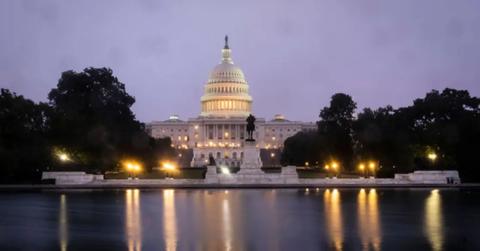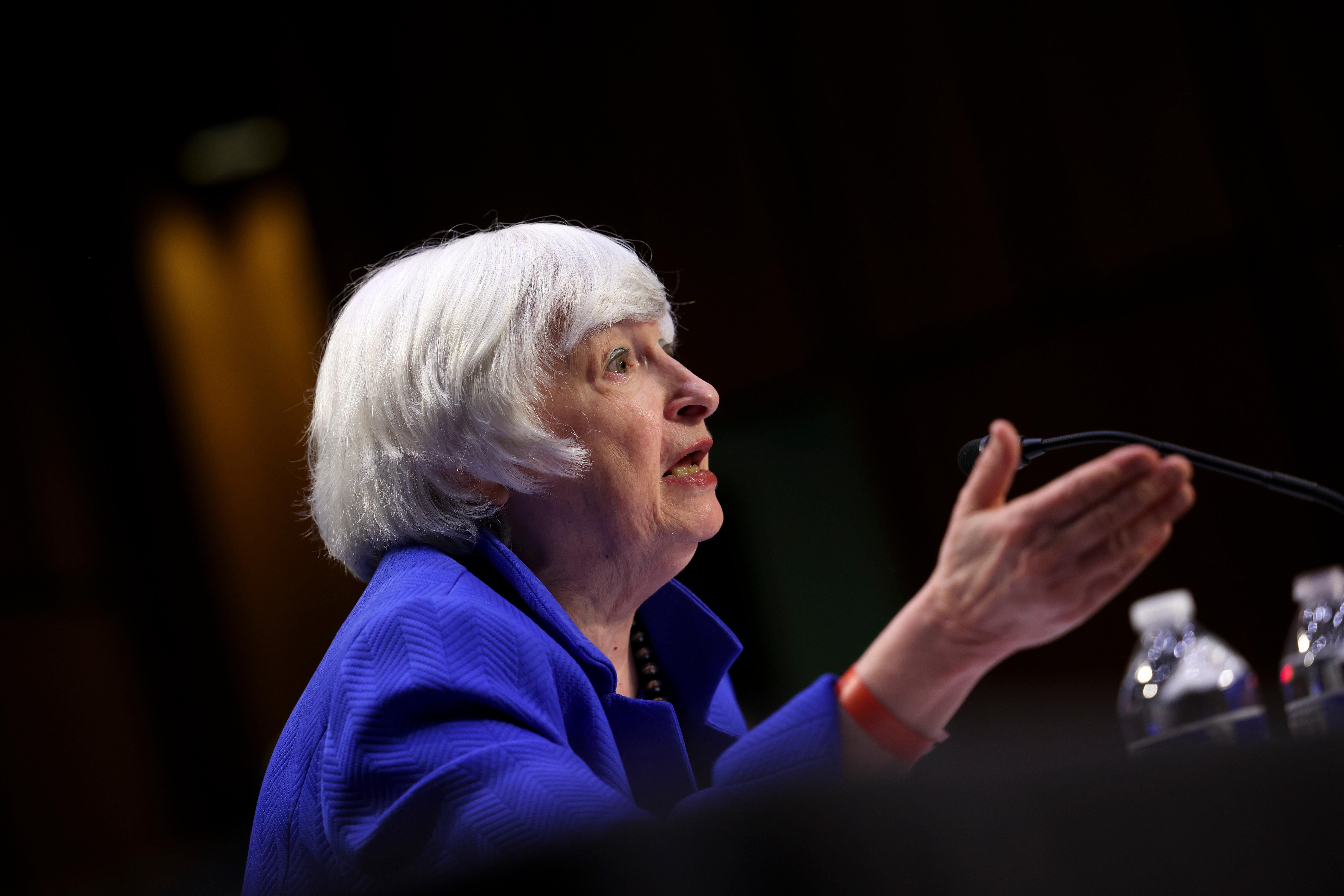Edge of the Fiscal Cliff: What Happens When the U.S. Treasury Runs Out of Money?
What happens when the Treasury runs out of money? Legislators have less than two weeks until that's expected to happen. Here's what we know.
May 5 2023, Updated 1:53 p.m. ET

The U.S. Department of the Treasury is responsible for managing federal finances, which includes paying the government’s bills. It uses money collected from taxes to satisfy expenses and keep itself from defaulting on debt. But what happens when the U.S. Treasury runs out of money?
For years, the government has found itself in the unfortunate position of being on the verge of running out of money. But, with Congress’s approval, the government’s debt ceiling has been raised repeatedly to avoid a default. But what happens if Congress decides not to raise the debt ceiling? What then?
Here’s a look at some of the severe consequences the U.S. would face.

Treasury secretary Janet Yellen
Default is imminent without raising the debt ceiling.
The basic outcome if Washington doesn’t approve a debt ceiling increase (or suspend the debt ceiling) is that the U.S. will default on its debt. The U.S. Treasury would also not have any more money to spend. The effects of a national default aren't precisely known, since it hasn’t happened before (lawmakers have voted to raise the debt ceiling dozens of times in the past).
It’s expected that the Treasury wouldn't attempt to prioritize payments if it runs out of money, but would simply stop all government payments, such as Social Security checks and military and government employee paychecks. Fortune has noted that nearly one-third of state spending comes from federal funding, which would be impacted in the event of a default.
The U.S. defaulting on debt would have a significant impact on Americans.
Americans want to know how a default could impact them. Janet Yellen has warned of “widespread economic catastrophe” and JPMorgan Chase CEO Jamie Dimon also said it could be catastrophic.
Paul Van de Water, from a Center on Budget and Policy Priorities think tank, said, “Every item of federal spending is going to be affected — whether you’re talking about payments that individuals receive, federal benefits, paychecks to civilian and military employees, grants to state and local governments — all of these are going to be touched.”
Treasury bills, the U.S. credit rating, and global markets all stand to be impacted by a default. Reuters reported Moody's projections of a nearly 4 percent drop in economic activity, a loss of almost 6 million jobs, unemployment rising almost 9 percent, and a major stock sell-off. The impact would also likely cause an interest rate increase on consumer debt, business debt, and mortgages.
There are reasons Congress may not raise the debt ceiling.
Much of this debate may come down to bad blood between the Republican and Democratic parties. In 2021, when debt default became a topic of concern, Joe Biden and Senate Minority Leader Mitch McConnell heatedly contradicted each other regarding the situation.
In the past, Biden stated that the vote is "up to Mitch McConnell," who has the power to influence all Senate Republicans in their votes about the debt ceiling. He has also asked Republicans to “get out of the way” and stop hindering Democratic efforts.
However, according to Fortune, McConnell sent a letter on Oct. 4, 2021, in which he essentially washed his hands of the issue. “For two-and-a-half months, we have simply warned that since your party wishes to govern alone, it must handle the debt limit alone as well.”
In 2022, the debate surrounding the debt ceiling arose again. And in 2023, both chambers of Congress came face to face another time to decide the fate of the nation's debt ceiling limit.
Prior to any decisions being made, House Republicans were "demanding deep spending cuts and other policy changes" in exchange for agreeing to raise the debt ceiling, NPR reported.
Should both sides ever fail to reach an agreement, everyone, including members of the government, would be negatively impacted by it.
